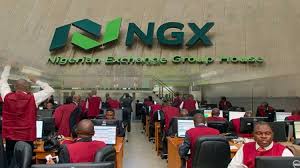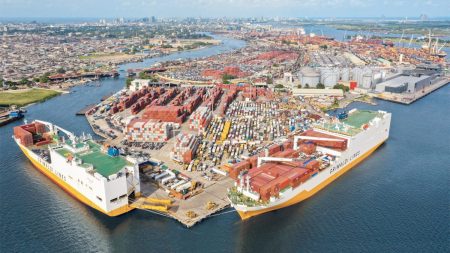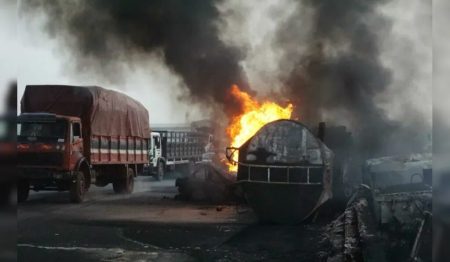 11 October 2015, Sweetcrude, Port Harcourt – The appointment was very Nigerian: leaked to the foreign media while the president was attending the 70th session of the General Assembly of the United Nations. That is how President Buhari donned the toga of Nigeria’s Minister of Petroleum Resources. To be fair to the gentleman, he will not be the first Nigerian president to appropriate that office but he certainly would be the first Nigerian president to occupy the high office twice with more than a shadow of doubt as to his qualification to hold a high level appointment in the Petroleum Ministry even once.
11 October 2015, Sweetcrude, Port Harcourt – The appointment was very Nigerian: leaked to the foreign media while the president was attending the 70th session of the General Assembly of the United Nations. That is how President Buhari donned the toga of Nigeria’s Minister of Petroleum Resources. To be fair to the gentleman, he will not be the first Nigerian president to appropriate that office but he certainly would be the first Nigerian president to occupy the high office twice with more than a shadow of doubt as to his qualification to hold a high level appointment in the Petroleum Ministry even once.
His predecessor in this office is Mrs. Diezani Alison-Madueke, an architect who got an MBA from Cambridge and worked for several years for the Shell Petroleum Development Company of Nigeria before being appointed Minister for Transport and later Mines and Steel; In 2011 Mrs. Alison Madueke was awarded a doctorate degree in management sciences by the Nigerian Defence Academy but was, at her appointment to the Ministry of Petroleum Resources as minister, adjudged by many in the industry to be unfit to manage Nigeria’s most important business portfolio. It is in this backdrop that a president, whose participation at the school certificate examinations has been embroiled in doubt, appoints himself to the sensitive office. Apart from the question of his academic qualifications, the president comes into this office when the oil and gas industry is facing its most daunting challenges in decades. Oil prices are at their lowest in a decade, alternative sources of energy and the cry for clean and renewal energy forms are at their highest pitch; the energy conundrum in Nigeria is conjoined to the Nigerian economy in such a manner that the health of the industry dictates the health of the Nigerian economy.
Muhammadu Buhari is the president that has taken four months to formulate an idea as to the manner of individuals he proposes to manage Nigeria with and after four months his list of nominees contain characters that like him, have shunned attendance at panels set up to examine acts of human rights abuses and economic sabotage. Has he been slow to formulate a team out of excessive prudence or the slowing of biological functions in an ageing facility? Neither is good for Nigeria. President Buhari would come into this office with a baggage of history. Like his immediate predecessor, President Buhari as Federal Commissioner for Petroleum and Natural Resources, was mired by a scandal of N2.8 Billion allegedly stolen from the NNPC’s Midlands Bank accounts in the United Kingdom. When the loss was investigated by the Ayo Irikefe Panel, he and Olusegun Obasanjo, the duo who should have accounted for the movement of the sum were never invited by the panel to testify about the missing billions. Perhaps the general would have attended and perhaps he would have shunned that panel as he did several years later to the Oputa Panel.
Nigeria’s oil and gas deposits are found largely in the Niger Delta area of Southern Nigeria and the people of that region have cried everlastingly that Nigeria’s federating units should control the resources in their domains like other federations and contribute taxes to the delegates from all the states that constitute the federal government. Muhammadu Buhari’s Katsina State has not contributed a litre of crude oil or a cubic meter of gas to the country’s stock and he seeks to come into the position to determine how the resources are exploited and their earnings administered. Does this philosopher king have the requisite knowledge of the daunting challenges that face the host communities of oil and gas operations? Does he have the presence of mind to formulate a policy for the industry that can meet the challenges of the moment? If it takes our president four months to nominate his ministers, how long would it take him to conceptualise and initiate a policy that can meet Nigeria’s domestic energy needs, the OPEC production politics, Nigeria’s distribution channels in a glutted market, a robust investment policy that can leverage the exigencies of the moment, an industry structure that is functional and meets the needs of all stakeholders, especially the resource owners that have been divested of title, dignity and a safe environment, ALL of these while running Nigeria? Muhammadu Buhari was elected to preside over Nigeria; it would serve him and Nigeria well if he sticks to his primary brief.



